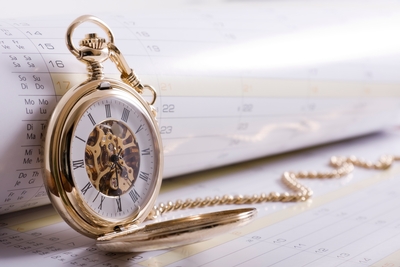 If you’re just starting out as a freelancer, whether you’re a writer or an editor, keep in mind that the only way to survive is to be brutally efficient — which means you will have no social life. You should, however, get a gym membership and use it, because you’ll need to keep your energy level up. In addition, if you keep fit, you can look good in inexpensive clothing, which is all that you’ll be able to afford. The only thing you shouldn’t skimp on is getting a decent haircut from time to time. Having a good haircut really makes you look like you’re competent and in control of your life, even when you’re not. A haircut and a watch. Always wear a watch. Only teenagers use their cellphones to check the time.
If you’re just starting out as a freelancer, whether you’re a writer or an editor, keep in mind that the only way to survive is to be brutally efficient — which means you will have no social life. You should, however, get a gym membership and use it, because you’ll need to keep your energy level up. In addition, if you keep fit, you can look good in inexpensive clothing, which is all that you’ll be able to afford. The only thing you shouldn’t skimp on is getting a decent haircut from time to time. Having a good haircut really makes you look like you’re competent and in control of your life, even when you’re not. A haircut and a watch. Always wear a watch. Only teenagers use their cellphones to check the time.
Besides getting a good haircut and wearing a watch, here’s what I always tell my creative writing students at U of T and Ryerson when they ask me for advice — which I think applies to editors, as well. I tell them a freelancer only needs a few things:
- something to write with
- good lighting
- an ergonomic chair
- a dog, to make you get out of the chair and go for a walk
- Roget’s Thesaurus and a couple of good dictionaries
- a library card
- regular visits to the optometrist
- the cooperation from other people in the house (In other words: They must understand that even though you work at home, you are working at home, and are therefore unavailable except in an emergency.)
Ideally you get a room of your own to work in even if it’s tucked away in a corner of the basement, somewhere you can leave ongoing projects spread out and have no one mess with them, but if you’re forced to work at the kitchen or dining room table, make sure everyone else clears away their stuff after every meal so you have space to work. (You may need to get a bunch of bins or baskets for them to sweep everything into.)
- Time management is absolutely essential. I use the free Sunbird calendar you can download from Mozilla for long-term planning, but I also plan each day in much more detail on a work-sheet I review every morning and revise every night.
- Know when you are most productive and schedule your most important work for then. For example, when I’m working on an editing project, I usually spend mornings on my own writing and afternoons on editing and then go back in the evening to review what I wrote in the morning and edit it some more, and maybe also get in a tad more editing if I didn’t meet my goal for the day. (Yes, the workdays are absurdly long. Often I work 10-hour days seven days a week.)
- Give yourself realistic goals and try to stick to them — it’s better to be pleased that you got more done than expected than discouraged because you got less done than expected! When I’m juggling teaching and editing and writing at the same time, I never expect more than 500 words a day from myself; 1,000 words a day is for when I have more concentrated writing time, and if it turns into 2,000 or more, I am delighted.
- Don’t answer the phone unless you are expecting a call. Pick up all your phone calls at around 4 p.m. before people leave work, so if it’s anything important you can still call back.
- Strictly limit the time you spend on email and Facebook and other social media. Turn off the Internet when you’re writing (it’s okay to use it for research). You can use Facebook as a reward when you meet a goal. It’s way more fun that way.
Are there any experienced freelancers out there who would like to share their own tips for getting started?
Discover more from The Editors' Weekly
Subscribe to get the latest posts sent to your email.
